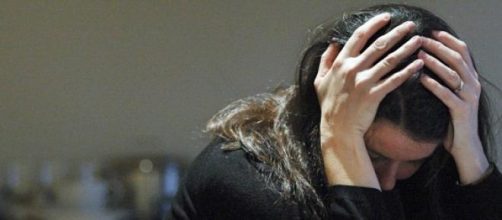The stock photo of someone with their head-in-their-hands is ubiquitous as a way of signifying a story about mental health. However, "the headclutcher", as this type of photo is known, is not a popular one with those with mental health problems, or at least, some people with mental health problems aren't happy with it. Mental health problems are diverse, and so are the people who suffer from them, so I'm assuming there is a diversity among the mental ill-health community about "the headclutcher" image.
The reason this has become an issue is partly because of the charity "Time to Change".
They are trying to get newspapers, TV stations and online news outlets to stop using "the headclutcher" picture. However, a bit of celebrity endorsement is always useful, and particularly when that celebrity has a massive Twitter presence, and then tries to launch a campaign via Twitter. So, "Time to Change" hit gold when Stephen Fry endorsed the drive to end "the headclutcher", and headed straight on to Twitter.
Stephen Fry took to Twitter with a hashtag that may go viral, because it asks everyone to get involved, and do something that is a bit egocentric and oh, so terribly now.
Stephen Fry wants people to take a fun "headclutcher" selfie, and post it on Twitter. By the way, if you have nothing else to do, you can go and find Stephen Fry's "headclutcher", as it was also published on The Independent newspaper website.
"The headclutcher" is apparently wrong on a lot of levels. Firstly, it is inaccurate because it suggests everyone with mental health problems look depressed all the time. Secondly, it suggests mental ill-health is a hopeless condition. Thirdly, it is stigmatizing in some way.
"Time to Change" have produced a lot of other pictures/images for the media to use instead. But, it feels a lot like angsty navel-gazing to be getting uptight about "the headclutcher". The media need a quicker signifier-symbolic picture, and I'm finding it very hard to get worked-up about "the heaclutcher". Parodying it, in the way Stephen Fry has done, is mildly amusing. But, it ends up being funny, which ends up diminishing the importance of mental health.
